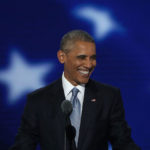By DAVID McFADDEN
Associated Press
KINGSTON, Jamaica (AP) _ The sole power distributor on Jamaica is slashing the number of hours that electricity is provided to entire communities where electricity theft is rampant, leaving political leaders fuming Tuesday.
The move by Jamaica Public Service Co. was called unjust by both main political parties, with one government minister describing it as a “national crisis.” The Caribbean country’s prime minister and its utility regulator summoned top company executives to meetings because of the impact on legitimate customers.
Senior utility official Gary Barrow said the company had “tried everything to reduce electricity theft” and was forced to cut hours that power is provided to neighborhoods where more than 70 percent of it is pilfered. The company said it was striving to minimize effects on businesses, hospitals and schools in eight impoverished communities that have so far been identified as prone to widespread theft.
Last year, the company removed nearly 200,000 illegal power lines, audited about 113,000 accounts and collaborated with police to arrest roughly 1,200 people suspected of energy theft. But high levels of theft continue, causing “extensive damage to the company’s equipment and ongoing power outages caused by illegal connections,” the utility said in a statement.
Karl Samuda, the opposition Jamaica Labor Party’s spokesman on energy, said he believes the strategy violates the company’s license. The utility, typically referred to as JPS, is unfairly punishing hardworking people who pay their electricity bills, he said.
“It escapes me as to why JPS would opt to act in this manner and expose itself to all kinds of legal liabilities and moral hazards,” Samuda said.
In Parliament, Junior Energy Minister Julian Robinson said JPS officials told him they would not heed demands to immediately drop the plan for cutting power to the identified communities. He said Prime Minister Portia Simpson Miller had summoned company leaders to a meeting Wednesday.
Jamaica’s Office of Utilities Regulation said it was already receiving customer complaints and was “treating this issue with the highest priority.”
In Jamaica and other Caribbean islands, electricity is as much as five times more costly than on the U.S. mainland. Import-dependent Jamaica pays rates of roughly 43 cents per kilowatt hour, rendering the island economically uncompetitive. In many gritty areas, wherejoblessness is common, a tangle of illegal wires can often be seen tapping into power lines.











